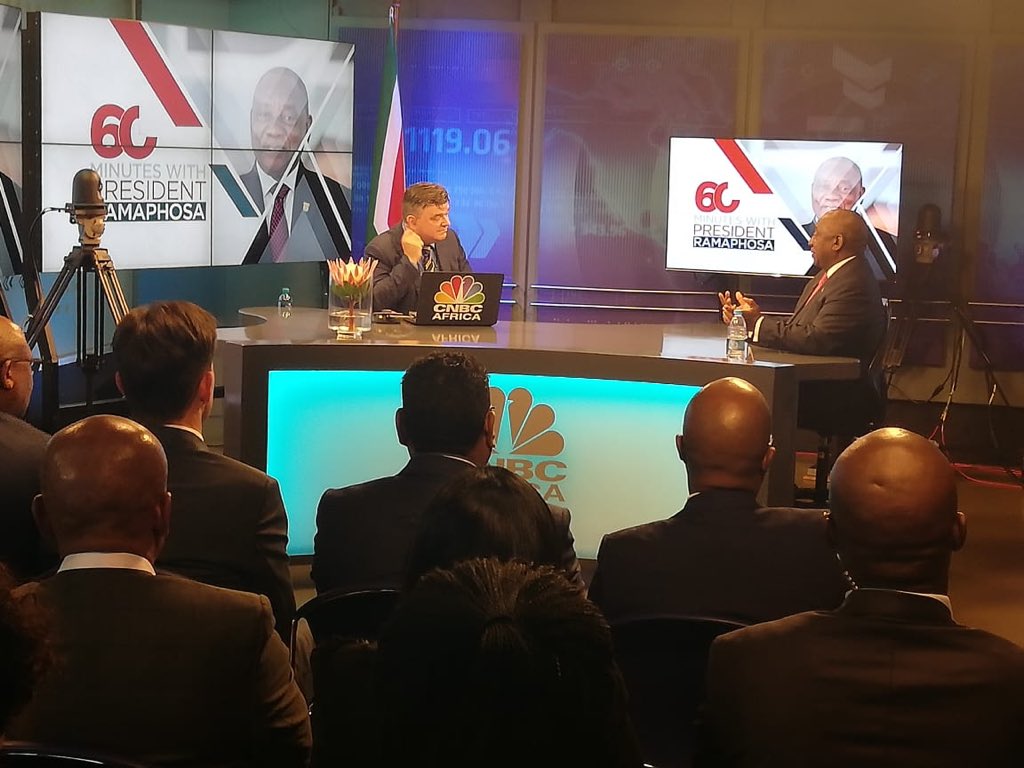Riyaz Patel
President Cyril Ramaphosa says institutions governing the rule of law in South Africa are still in a phase of “rebuilding” after being “weakened,” resulting in a perceived lack of urgency in bringing to book those accused of corruption at State-owned entities and elsewhere.
He said due process takes time, and the president cannot “just rush in and say arrest this one and that one and put them in jail.”
But, Ramaphosa assured, people will be astounded at the end results.

“When they do their work people will be awed and say ‘wow’ we didn’t realise it would have this type of effect,” the president said speaking on CNBC Africa.
Ramaphosa was mainly fielding questions about the state of the South African economy ahead of the start of the second annual investment conference in Johannesburg.
The event is the showpiece of a multi-prong strategy seeking to raise R1.2 trillion in new domestic and intentional investment over the next five years to kick-start the economy and create work for the jobless millions.
“We’re holding the SA Investment Conference where we’re seeking to raise another R300 billion. We want our businesses to succeed. We want them to represent SA. There is a need for a business forum, a discussion which I want to convene. We want to support our business as they surge into the continent.”
Ramaphosa said State-owned enterprises had been “debilitated by dysfunctionality and corruption,” which necessitated government bailouts.
“One of the things that [business people and investors] often complain about is that a lot of money was stolen and siphoned out of state-owned enterprises [but] why are people not getting arrested and not in jail,” said Ramaphosa.
“And we say – that too has to wait. That has to wait for the process that we have got embedded in our laws and our constitution.”

Ramaphosa said that part of the reason for what appears to be a “lack of urgency” was that the institutions overseeing laws and order in South Africa needed to be “repaired and strengthened.”
But he said “They are going to pounce – they are definitely going to start doing their work.”
On similar steps to the sanctions announced by the US against the Gupta family and their associate Salim Essa in October, Ramaphosa said South Africa’s different legal system meant the country did not have the ability to issue similar worldwide sanctions.
“Americans have different laws than we do. They are able to issues sanctions against anyone they want around the world. We don’t have those types of laws. People people need to understand that.”
“It is very easy to be sensational and say American did it why can’t you do it?” Our legal and jurisprudence is very, very different. But at the same time the commitment from the president right through the structures is that we are going to ensure that there is rule of law in our country, rule of law had been broken,” Ramaphosa said.
Ramaphosa also defended his government’s job-creation record over the past two years, claiming that they’ve done everything they can to create employment opportunities and put people in work.
“We’re the most unequal society in the world because of our past. Unemployment and poverty issues still hold us back. So we have decided that foreign policy is going to be pivoted around prospering your neighbour as you want to prosper. Cooperation and partnerships is what we will be championing,” the president said.
However, as the figures released Stats SA showed last week, the number of people without jobs has climbed to an 11-year high.
